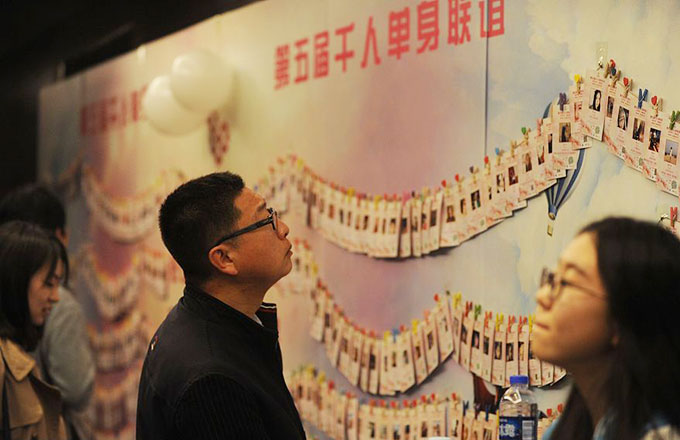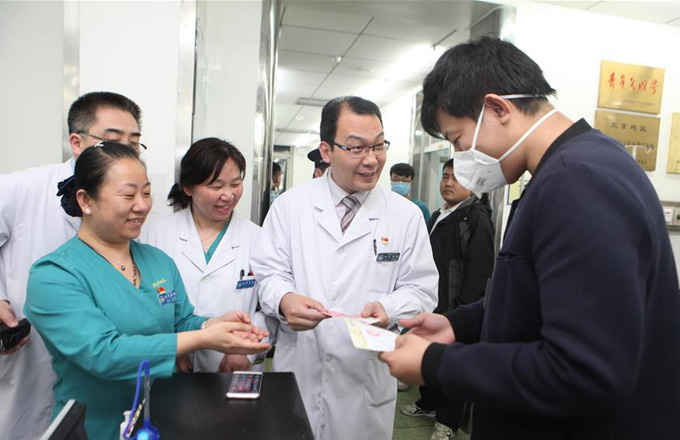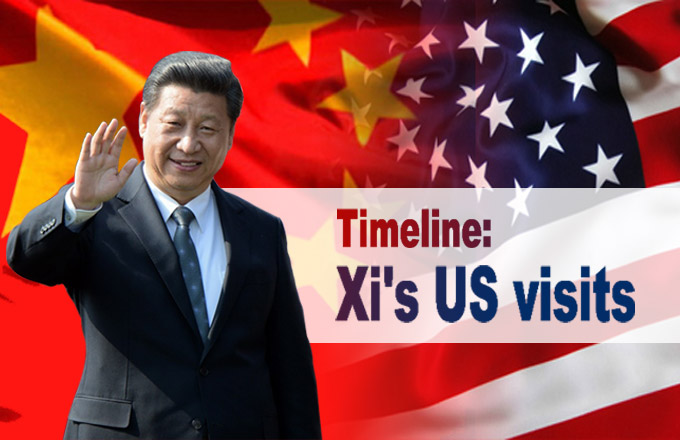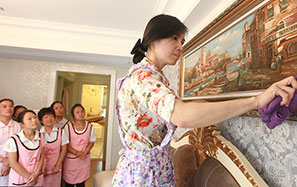Chinese volunteers on the rise overseas
More are motivated to offer their services in developing nations
Wu Xiangde is super busy these days. As a veteran volunteer from China, the 65-year-old is on a nonprofit program to treat a highly polluted river in Nairobi, Kenya, updating each day's progress on his blogs.
"There are volunteers from many countries on different projects in Kenya," said Wu, from Liaoning province, who has been involved in programs as a volunteer in Africa since 2003. "You don't feel alone and can gain motivation from others. I am filled with happiness."
He is just one of the rising number of Chinese who voluntarily devote their time and energy to service overseas.
Ten years ago, government-backed NGOs started to send Chinese volunteers overseas, with the major task of promoting Chinese culture and fostering friendship between China and other countries.
Wang Xiaohui, a sub-director at the Central Committee of the Communist Youth League of China, said 590 volunteers have been sent so far to 22 developing countries in Asia and Africa in a program his organization co-launched with the Chinese Young Volunteers Association in 2002.
Most of these volunteers are teaching Mandarin, and work in sectors such as health, agriculture, sports, resources development and IT promotions, he said.
Yet only recently have grassroots NGOs and international organizations started enlisting volunteers in China and sending them to render help in less-developed areas overseas. They are involved in a variety of sectors, from schools and medical institutions to community development to business management.
AIESEC, the largest student-run organization in the world, sent more than 2,400 Chinese students and fresh graduates to work as volunteers in overseas schools and communities, for six weeks to a few months in 2012, a 20 percent increase year-on-year.
Feng Yuan, vice-president of external relations at AIESEC China, said, "Young Chinese people have a passion for devoting themselves to nonprofit undertakings. More and more students are aware of our global volunteer program and have shown an interest in it."
VSO, the world's leading independent international development organization that offers volunteers the chance to work abroad to fight poverty in developing countries, started seeking Chinese volunteers to work overseas in 2010.
For decades, the UK-headquartered NGO has been sending global workers to underdeveloped regions of China to help fight poverty.
However, since 2010 it has selected 15 Chinese obstetricians, IT technicians, project managers, financial professionals and other talented people aged between 28 and 40 to volunteer in countries including Nigeria, Kenya, Sierra Leone, Zambia, Nepal and Bangladesh.
This year, it plans to send about 30 Chinese volunteers to work overseas for six months to two years.
Shen Shuo, a project development official at VSO, said she was impressed with the passion shown by Chinese in volunteering to go to less developed countries.
Usually, most of the applications for volunteer work overseas come from people in big cities like Beijing and Shanghai, she said. But there are also applicants from most other parts of China.
Only one in 10 who send in their CVs is selected for work abroad, and all these speak excellent English, have high educational degrees and work experience, she added.
"There are a lot of talented people in China, and their willingness to serve is on the rise," she added.
Qin Ru, a project manager at the China Foundation for Poverty Alleviation, said, "As more and more NGOs go global, the demand for Chinese volunteers to work overseas will rise."
Compared with people from other parts of the world, NGO officials say the advantages of Chinese volunteers include a similar mindset with people in the countries they serve, as well as their experiences in a developing country.
Zou Yan, a volunteer working on an 18-month program in Kenya, said the mindset of Chinese people is very similar to that of Africans.
"Europeans and Americans stress a well-organized work style and closely follow a set agenda," she said. But in many cases it does not work in Africa.
Chinese are more flexible with agendas and are never overcritical, she said. "That's an advantage in work styles."
Hao Yang, who in March 2012 became the first Chinese volunteer the VSO had ever sent to Nepal, said the visual and mental impact of conditions in some poor areas is less striking because such scenes can also be seen in underdeveloped regions of western China.
"There are many similarities among developing countries," said the 31-year-old, who returned to China in March this year. "Also, it takes shorter time for people with the same skin color to get along with each other."
But still, there are difficulties that Chinese need to overcome as they serve in an unfamiliar country.
While in Nepal, Hao had to deal with frequent power cuts and a lack of clean water. "There could be a 14-hour power cut on a winter day where I worked," she said.
For Wu, the veteran volunteer in Kenya, the biggest obstacle is the cultural difference.
"I don't understand why I am requested to pay tips when I ask residents in some African countries to help with a nonprofit program," he said. Even ministers in certain countries demand he pay the cost of gasoline for their private cars when they are invited to a gathering, he added.
Like most volunteers, however, he recognizes that sincerity, respect and a sense of responsibility are key to making a foreigner competent on overseas service.
"You have to attend to trivial things on a daily basis," Hao said, "but you have to show respect to others always, and not give orders or criticize as though a superior."
He Dan in Beijing contributed to this story.



















